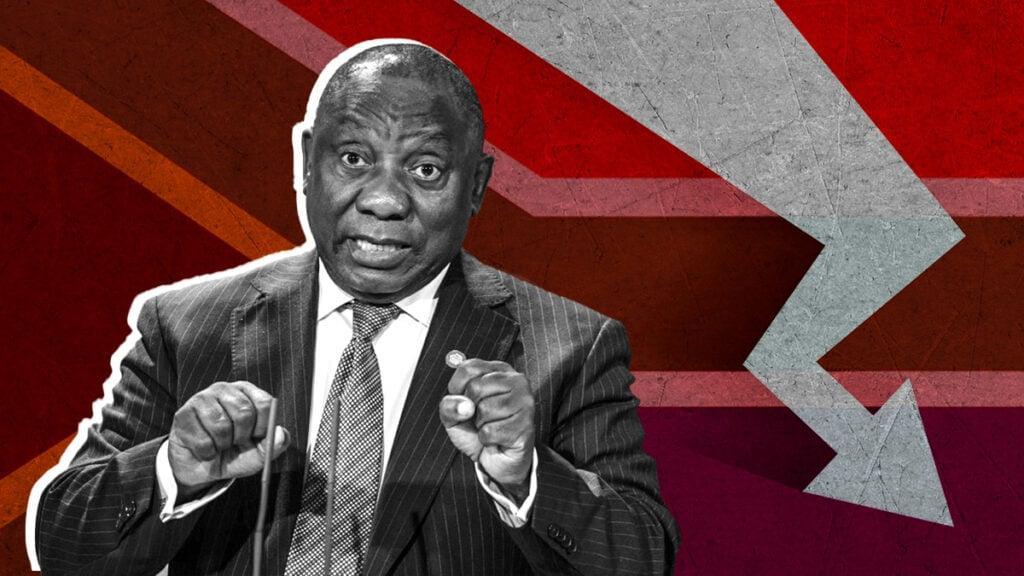Africa-Press – South-Africa. The announcement of a 30% tariff on goods exported from South Africa to the United States is another nail in the country’s coffin and threatens to undo any chance of economic growth this year.
It is not only about the impact of direct tariffs on South Africa, but also about the effect they will have on investor confidence in the country and how a decline in global trade will affect its economy.
This is feedback from Efficient Group Chief Economist Dawie Roodt, who explained to Daily Investor the potential impact of the new tariffs on South Africa’s economy.
On 7 July 2025, US President Donald Trump unveiled a wave of letters to various countries that threatened to impose higher duties on their exports to the world’s largest economy.
He signalled that he is open to discussions on the increased tariffs until 1 August, leaving the door open to negotiations for the country’s affected.
South Africa was hit with a 30% across-the-board tariff on all goods exported to the United States. It is unclear if the country’s mineral exports will remain untouched, as they are considered critical by the United States government.
“Starting on August 1, 2025, we will charge South Africa a Tariff of only 30% on any and all South African products sent into the United States, separate from all Sectoral Tariffs,” Trump said in a social media post.
“Please understand that these tariffs are necessary to correct the many years of South Africa’s tariff and non-tariff policies and trade barriers,” he said.
He reiterated that these policies have caused an unsustainable trade deficit with the United States, which he claims is a major threat to its economy and national security.
Roodt explained that the economic impact of these tariffs will not be that severe in terms of absolute figures, but relative to the country’s growth, it will be devastating.
“The impact will not be that great. That is the short answer, but there is a lot more to it because the South African economy is hardly growing,” Roodt said.
“Even a small headwind like this will add to the many problems the country already faces. This is just another nail in the coffin of the South African economy.”
More than 30% tariffs at play
Efficient Group chief economist Dawie Roodt
Roodt explained that while the short answer is ‘not that much,’ the impact of tariffs on the South African economy is far more complex.
“So, the answer is not that much, but actually, given the circumstances, it is something that we need to be very concerned about,” Roodt said.
Economists and analysts commonly focus on the direct impact of tariffs on South Africa’s exports to the United States, but there are other forces at play.
Crucially for South Africa, the imposition of tariffs will impact the already fragile confidence of investors in the local economy.
Foreigners have been net sellers of R138 billion worth of JSE-listed equities so far in 2025, with billions more in sales expected as uncertainty continues abroad and local confidence is battered.
Roodt said a far larger impact on South Africa will come from the tariffs placed on other countries, particularly the country’s major trading partners, China and the European Union (EU).
Tariffs imposed by the United States on products from these countries will affect the performance of their economies and, consequently, reduce demand for South African exports.
Investec investment strategist Osagyego Mazwai explained that a full-blown trade war between the United States and China will significantly impact South Africa.
Increased tariffs placed on China will result in slower economic growth in the world’s second-largest economy and impact its demand for commodities from countries such as South Africa.
China consumes over 20% of South Africa’s exports, which translates to around 5% of the country’s GDP at R300 billion.
Tariffs on the EU are likely to have a similar impact on the economy, with the economic bloc consuming just less than 20% of South Africa’s exports.
Mazwai said if demand for our goods and services in China and the EU falls, that would negatively affect South Africa’s trade balance and the profitability of our domestic companies.
However, Trump’s imposing tariffs on South Africa’s trade competitors could negate the impact on the local economy to a degree.
This means South Africa should not completely lose its relative advantage in some of those particular commodities, as prices are expected to rise.
Source: dailyinvestor
For More News And Analysis About South-Africa Follow Africa-Press






